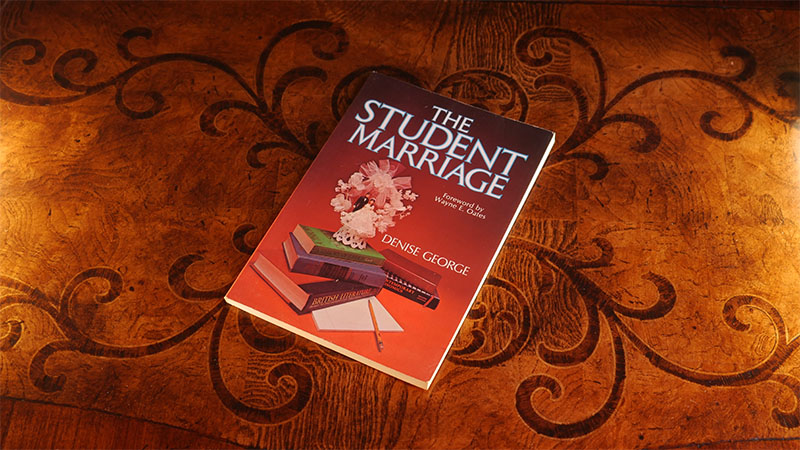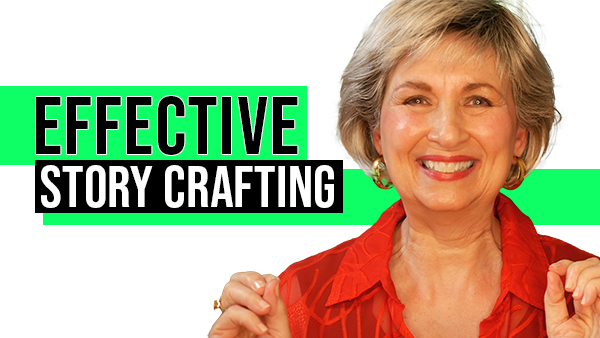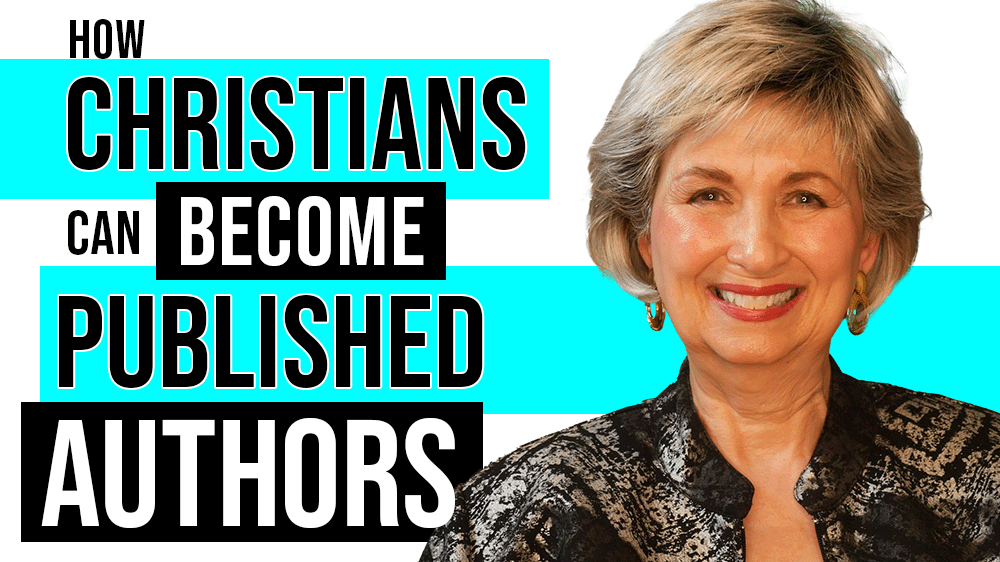Have you ever wondered why we love stories so much?
Humans are programmed for story. As children, we fall asleep listening to bedtime stories. We study stories in grade school. We hear them preached from pulpits. As adults, we consume stories of every form—from the latest Netflix movie to the most recent John Grisham novel. We are quite simply addicted to story.
But why? Why do stories have such a hold over us?
We love stories because they have the power to inspire us, encourage us, inform and educate us. A well-written story delights, thrills, and challenges. Stories give us hope! They show us where the needs in us exist, and they stir us to feel something, to do something.
I once wrote a speech as an assignment for a graduate school class. My subject was the international problem of starving children around the world. Instead of delivering an abstract thesis about the problem itself, as was my original plan, I decided to switch tactics and began with the following words: “Let me tell you a story…”
The students perked up automatically as I introduced them to the personal stories of three impoverished children. I talked about their background, their context, their living situation. I showed photos of the children so we could see them face to face. In that moment, story allowed me to stand aside, to get out of the way, so that my peers could truly encounter the real children who needed help, intervention and care. At at the end of my talk, a student in the back row jumped to his feet and suggested that the class immediately take up money—right then and there—to be sent to an organization that feeds hungry children throughout the world. That day, I witnessed first-hand the power that stories have to inform us and stir us to take immediate action.
Stories Are Magic!
Remember back in the day, pre-pandemic, when going to movie theaters was a regular and even weekly ritual? Have you ever wondered why a room full of strangers would pay good money to sit together in a pitch dark room, shoulder to shoulder, for about two hours?
It’s because stories have the power to reach through the screen and grab us by the heart. A well-crafted story communicates directly to the subconscious, affecting our thoughts, emotions, fears, and desires. Bedtime stories are not just for children. As adults, we yearn for stories that motivate us to cheer for the protagonist, to loathe the villain, and most importantly, to see what happens in the end.
What is the mechanism that makes stories work?
It is our craving for homeostasis—the desire for everything to be okay. That’s the mechanism that draws us into the story. Regardless of the medium it’s packaged in, whether film, book, sermon, or magazine article, stories that reveal characters who face real dilemmas are powerful. They invite us to embark on the same journey that our hero undertakes. We find ourselves experiencing the same hopeless situations, the same obstacle-ridden challenges.
The best writers put themselves in the shoes—and in the very ankles—of their audience.
Sometimes stories fill us with dread, leaving us to wonder how we will ever survive. Other times, stories fill us with hope and excitement. Subconsciously, we know that if we learn the lessons that our character learns in the story, we can achieve similar outcomes. Story allows us to experience the same risks and rewards, the same headaches and heartaches that we on the screen or page. Throw in an unexpected plot twist and our throats sink into the very abyss of our stomachs. Ultimately, we arrive at the climax and strong resolution of the story, which gives us a sense of catharsis and teaches us lessons about ourselves that otherwise might have escaped us.
The magic of story is that we can experience the ups and downs of life without having to actually live them. Stories help us absorb meaning and truth while shielding us from the actual struggles it would take to learn them. From a safe distance, stories invite us to emotionally “step into” the moment, to sit on the edge of our seats, to anticipate the outcome.
I can’t tell you how many times I’ve watched Dances with Wolves, A River Runs Through It, or Titanic—and all the while crying big sloppy tears. Even though we know exactly what’s going to happen, we find ourselves returning to these stories, rubberbanding back to these great narratives.
Why?
Because we are stories. Over the course of our lives, each of us experiences a beginning, middle, and ending. Our plot twists. Our characters develop. And over and over, we are faced with choices that will affect the outcome of us. Who will we marry? How will we survive this diagnosis? Do we have what it takes to face our demons, to face ourselves? Will we choose what is good? Or will we become a cautionary tale?
Good films educate us. But great films—the ones that contain eternal meanings—transform us. Great stories encourage us to embrace our struggles and equip us to overcome them by revealing a version of ourselves that we can aspire to become.
Think of the well-written stories that have helped shape your own life. What made these stories so compelling and unforgettable?
As a writer, you have the power to craft stories that can transform lives and influence people for the better. Stories have always been the most protected and cherished treasures of any civilization. So as a storyteller, don’t take this privilege lightly. As Joseph Gold once said, “Stories hold within themselves a certain magic. Story is to human beings what the pearl is to the oyster.”
But how do we write compelling, unforgettable stories?
Story Crafting 101
Stories are not merely written. Great stories are crafted.
According to its definition, the act of “writing” is “the activity or skill of marking coherent words on paper and composing text.” Since the beginning of civilization, humans we have sought to communicate ourselves through the written word in hundreds of different languages.
But make no mistake, writing is not the same thing as crafting. Almost anyone can write something down on paper. But to craft something is a different skill altogether.
Crafting implies a certain proficiency, professionalism, and commitment. Crafting is done by serious writers who know, as the saying goes, that the difference between an amateur writer and a professional writer is that the professional writer does not quit. Crafted writing demands thoughtfulness, reflection, and a dogged dedication. Crafted stories call us to invest ourselves in the art of story structure—a skill that must be learned and practiced.
Stories are not merely written. Great stories are crafted.
Story crafting also requires empathy. In addition to learning the tricks of the trade, writers must also possess the ability to feel what others feel. We cannot create characters that are authentic without experiencing or imagining, to some degree, the specific traumas and triumphs that shaped them. Becoming empathetic is a life-long quest; however, it will dynamically improve our writing. The best writers put themselves in the shoes—and in the very ankles—of their audience.
The art of story crafting can teach us important truths in ways that other forms of writing simply cannot. That’s why stories are a writer’s best friend. Because when writers take time to develop their story-crafting skills, they discover something remarkable: They never lack for book contracts, and editors and publishers outbid each other to receive their work.
But harnessing the magic of story crafting takes time and effort. Learning to write narratives effectively often involves re-writing. It won’t be easy, either. But nothing worth doing is easy. Anne Bronte was right: “He that dare not grasp the thorn should never crave the rose.”
What Else Can Stories Do for My Readers?
Stories have additional effects on our readers:
- Stories create intimacy between a writer and a reader.
When we write, we make ourselves vulnerable to our readers. We share with them the personal triumphs and tragedies we’ve experienced in our lives, and we do this candidly. Many writers, during their process, imagine that they are writing to one person, to one reader. We write from the heart. We bleed, as Hemmingway famously said, all over our typewriter. In this way, a writer becomes a “wounded healer” to a reader, especially if the reader struggles with the same situation or problem the writer addresses through personal stories. Our goal in writing is clarity and concision. We want to write in ways that speak directly to the hearts of our readers, thus connecting us to them forever.
I love what Paul Auster wrote: “Every novel is an equal collaboration between the writer and the reader and it is the only place in the world where two strangers can meet on terms of absolute intimacy.”
- Stories have a soul-drawing power.
Stories have the power to capture readers and take us on an epic journey. More than anything else, they instantly captivate and hold our attention. People of all ages and stages respond to a well-crafted stories—children, youth, young adults, middle-aged adults, and senior adults. That means, your readership will never be saturated. People are never too young or too old to be enraptured by the magic of well-crafted story. When readers open your book, they emotionally step out of their world and onto your pages, into the world you have populated. A well-told story can speak directly to the soul. It can even make time disappear by causing us to lose track of place and space.
- Stories can teach us hard lessons.
In my non-fiction book The Student Marriage, I share from my personal experiences as a young married woman struggling to work a fulltime job, go to school, and to keep a marriage strong. During those early years, I discovered that I was not alone in this struggle. Many of my married student friends were also experiencing difficulties trying to keep a marriage healthy while attempting sanity in those combined roles. The situation proved extremely trying for me and my husband, especially because we had little money and little time together.
During those years, I can remember visiting every library near our home in Boston, hunting for a book that could advise me on how to cope with the student marriage. I couldn’t find any. No matter how hard I searched, I never found that much-needed, elusive book.
So I decided to write it. Years later, I took all my experiences from that season of life and incarnated them into story format. And as it turned out, there were many young married couples who needed it. When I approached Broadman/Holman Publishers with the idea, they liked it and sent me a book contract.

Stories can do that. They can teach us hard lessons that meet us where we are.
- Stories build community.
There are many reasons why stories build communities. Not only stories soften our hearts and bring enhanced understanding to the problems we all face, stories can also tear down preconceived ideas we may have about others. They can adjust unfair prejudgments. A simple story can penetrate even the toughest of prejudices. They can transcend religion, politics, race, age, and gender.
Why? Because stories reveal the very things that make us connected as humans. They expose life itself. And there is no limit to their transferability. Stories travel across time, across human-drawn boundary lines, across continents, history, and cultures.
I believe that’s why children especially love stories. I can remember my two youngsters wanting to hear the same storybook read to them night after night. Eventually, they memorized every word of every book, and yet they delighted upon each rereading.
- Stories have universal appeal.
Stories have human-heart appeal. That’s why people respond to them and remember them. The movie is finished when we see the credits roll. The book isn’t over after we read the epilogue. Not at all. In fact, that is when the magic of story begins to do its hard work!
Final Thoughts
If you ever find yourself struggling to craft a well-structured story, keep in mind that your reader will be drawn to stories about ordinary people who are unexpectedly catapulted into impossible situations. Be sure to expose your character’s insecurities, failures, struggles, and doubts. Take time to paint a three-dimensional portrait of your protagonist—a character who is complex, layered, and confronted with real-life challenges. Never shy away from raising the stakes of the story.
Because that’s how life feels. Our readers want to see themselves in your story. They want you to help them make sense of their lives.
I believe story is, by far, the best way for a writer to communicate to a reader. Stories bring unique excitement, curiosity, discovery, and pleasure to our lives. Readers love well-written stories. Book editors love carefully-crafted, timely, captivating stories. It is a fact: Writers who know the secret to crafting meaningful stories will get their writing published again and again and again!
As a writer, story crafting is not only your best friend, it is also your secret weapon. Your words are powerful, and God will use them to help others discover deeper spiritual realities.
So as we incorporate the magic of stories in our writing, we can be confident that we are tapping into an ancient form of communication that has not only worked in the past, it has the power to forge the future. For, “If history were taught in the form of stories,” said Rudyard Kipling, “it would never be forgotten.”
For advanced information on how to write, shape, and develop stories, see Effective Story Crafting in our Christian Writers for Life masterclasses. Use code WRITENOW for 5% off your Lifetime membership.


Subscribe to our Free

Receive writing tips, links to exclusive “Q&A with Denise” sessions, information on upcoming events, and special discounts directly in your email.







